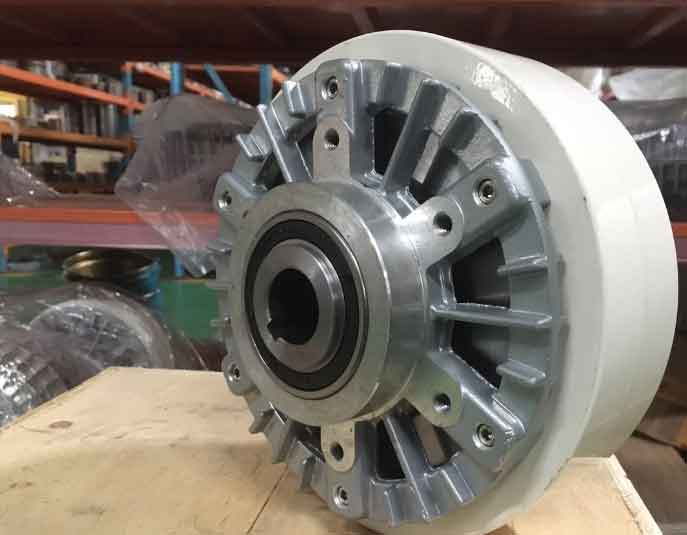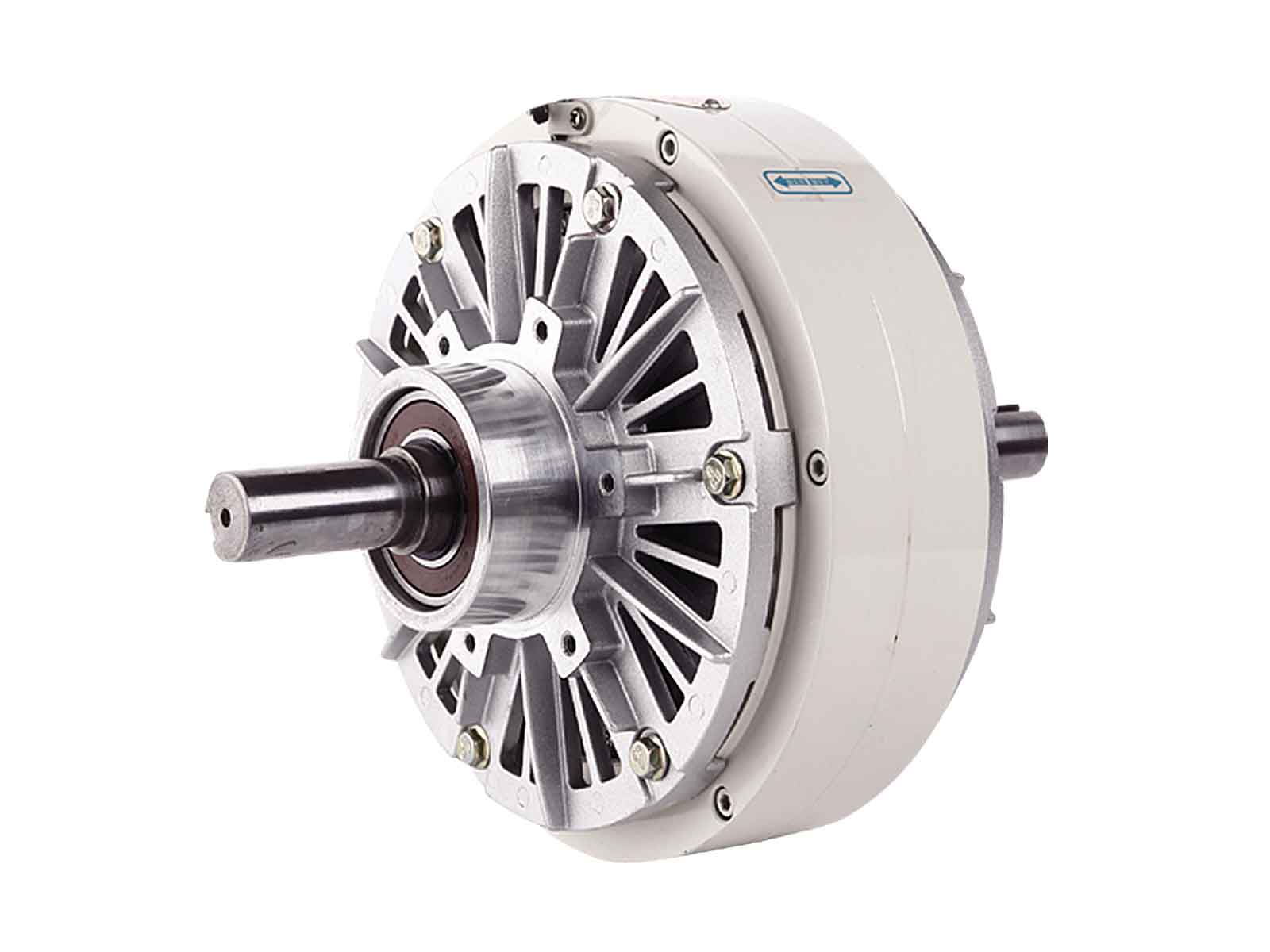Magnetic Particle brakes have found widespread utility in industrial applications, particularly in the realm of continuous sliding and tension control.
Magnetic Particle brakes operate on the principle of magnetorheology. They consist of a rotor (connected to the input) and a stator (connected to the output). The space between them is filled with magnetic particles suspended in a viscous fluid. When a magnetic field is applied to this setup, the viscosity of the fluid changes, allowing for torque transmission.
- Precise Torque Control : ne of the primary reasons magnetic Particle brakes excel in continuous sliding and tension control is their precise torque control. They can provide a wide range of torque levels, adjustable to meet specific requirements. This precision ensures that materials are handled with utmost care, minimizing the risk of damage.
- Smooth and Consistent Operation : In applications where smooth and consistent motion is paramount, magnetic Particle brakes shine. They facilitate seamless torque transmission, preventing jerky or abrupt movements that could compromise the integrity of the materials or machinery involved.
- Non-Contact Operation :A distinctive advantage of magnetic Particle brakes is their non-contact operation. Unlike mechanical brakes that involve physical friction, these brakes function without direct contact between the rotor and stator. As a result, there is minimal wear and tear, reducing maintenance needs and extending equipment lifespan.
- Rapid Response Time : Continuous sliding and tension control often require swift adjustments. Magnetic Particle brakes offer a rapid response time, allowing them to adapt quickly to changes in input current or control signals. This responsiveness is crucial in maintaining desired levels of tension or sliding control.
- High Reliability : Reliability is a cornerstone of magnetic Particlebrakes. They are designed to withstand the rigors of industrial applications, delivering consistent performance over extended periods of continuous use. This reliability minimizes downtime and enhances operational efficiency.
- Consistent Performance Over Time :Unlike some braking mechanisms that deteriorate with usage, magnetic Particle brakes maintain consistent torque levels throughout their operational lifespan. This reliability ensures stable and predictable control in a wide range of applications.

Top 5 Advantages of Magnetic Particle brakes
- Adjustable Torque Control: Magnetic Particle brakes offer precise and adjustable torque control. They can provide a wide range of torque levels, allowing for fine-tuning to meet specific tension or sliding control requirements in various applications.
- Smooth and Consistent Operation: Magnetic Particle brakes provide smooth and consistent torque transmission, which is essential for maintaining even tension or controlling sliding motion. This helps prevent jerky or abrupt movements that could damage materials or machinery.
- Non-Contact Operation: Magnetic Particlebrakes function without physical contact between the rotor and stator, which means there is no mechanical wear and tear during operation. This non-contact operation leads to reduced maintenance and longer equipment lifespan.
- Rapid Response Time: Magnetic Particle brakes can quickly respond to changes in input current or control signals. This rapid response time makes them suitable for applications where fast adjustments in tension or sliding control are required.
- High Reliability: Magnetic Particle brakes are known for their reliability and durability. They can withstand continuous use in industrial settings without significant degradation in performance.
- Consistent Performance Over Time: Unlike some other braking or tension control mechanisms that may experience changes in performance as they wear, magnetic Particle brakes can maintain consistent torque levels over time, ensuring stable control.
Magnetic Particle brakes are used for continuous sliding and tension control in four major industries
Magnetic Particle brakes find applications in a wide range of industries, such as web handling (e.g., in printing and packaging machinery), wire and cable manufacturing, textiles, and more.
Magnetic Particle brakes are commonly used for continuous sliding and tension control in various industrial applications due to their unique properties and capabilities.
- Web Handling :In the printing and packaging industry, where materials like paper and plastic films need to be precisely fed and controlled, magnetic Particle brakes are employed to maintain tension in the web. Their ability to offer fine-tuned torque control ensures smooth and wrinkle-free material handling.
- Wire and Cable Manufacturing :Wire and cable manufacturing demand precise tension control to achieve consistent product quality. Magnetic Particle brakes are used to maintain tension in wire drawing and extrusion processes, resulting in uniform products.
- Textiles :The textile industry relies on magnetic Particle brakes for tension control during processes like winding, unwinding, and weaving. The ability to adjust torque levels ensures the integrity of delicate fabrics.
- Paper Converting :In paper converting machines, where rolls of paper are cut, folded, and processed into various products, magnetic Particle brakes are used to control the speed and tension of the paper web. This ensures accurate cutting and folding without damaging the paper.
Conclusion
In conclusion, magnetic Particle brakes are invaluable in continuous sliding and tension control applications due to their precise torque control, smooth operation, non-contact design, rapid response time, reliability, and versatility. Their ability to consistently perform over time makes them a preferred choice across various industries, from web handling to textiles and beyond. When it comes to ensuring the integrity of materials and the efficiency of industrial processes, magnetic Particle brakes stand as a reliable and adaptable solution.
